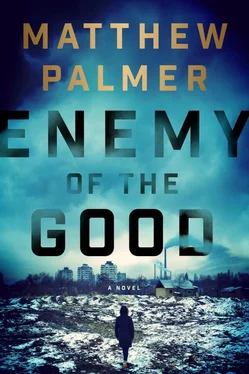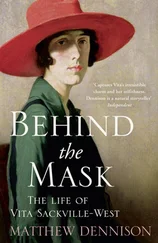“Of course.”
_____
Even as she was settling into her new job and learning the unique rhythms of a new embassy, Kate was working to track down Valentina. Her first stop was the CIA station and its chief, Larry Crespo. The station was located on the basement level behind a massive metal door. Kate hit the buzzer to the right of the door and waited. She stood there for almost four minutes, feeling increasingly foolish until a severe-looking woman with her gray hair pulled back into a librarian’s bun opened the door and ushered her in wordlessly. Behind the door was an airlock-like arrangement with an elevator-sized holding area and a second steel door on the far wall. Kate’s nameless escort stared straight ahead avoiding both eye contact and small talk. Her demeanor and Kate’s long wait at the front door offered an unambiguous message. You may be the ambassador’s niece, but down here you’re unimportant. The CIA and the State Department were bound at the hip and yet barely tolerated each other.
On the far side of the door was a nondescript open-plan office space and one additional reminder of Kate’s low-caste status. On the back wall, next to a line of cheap government-issue clocks showing the time in Washington, Bishkek, and Moscow, a red light lit up, a warning, Kate knew, that there was an outsider in the suite and the staff should watch what they say.
As station chief, Crespo had the only private office in the suite. In Kate’s experience, CIA operations officers came in two distinct flavors. There were the former military types—usually army or Marine Corps, occasionally navy and only rarely air force—their knuckles dusty from dragging them on the ground as they learned to walk upright. The other flavor was the back-slapping used-car salesman with an Ivy League pedigree and a passionate interest in tennis. Crespo was of the first sort.
He was short, no more than five foot five, and Kate regretted her decision that morning to wear the pumps with the four-inch heels. Shaking hands with Crespo, she felt like a giraffe.
The station chief’s windowless office was ultra-modern, uncomfortable, and Spartan in the extreme. The walls were completely bare, with none of the standard awards and plaques and pictures with “Washington famous” people that made up the I-love-me display that was seemingly de rigueur for senior government bureaucrats. The desktop was clean. The metal in-tray was empty. There were no family pictures anywhere in the office. The only decoration of any kind was a pen set on the desk embossed with the Marine Corps globe and anchor.
And Crespo looked like he still woke up early for PT. He was trim and fit with a regulation-short haircut, and as he shook her hand he looked at Kate with ice blue eyes and the kind of focused intensity she associated with psychotics.
“Thanks for seeing me,” Kate said.
“You have ten minutes,” Crespo replied. “Don’t waste them.”
Crespo was thinking to unbalance her, get her on the back foot. Kate resolved not to give ground. He sat in the one chair and gestured for Kate to take the low-slung couch.
“You know why I’m here?” she asked.
“The ambassador’s wild sheep chase for Seitek and Boldu.”
“Why do you call it that?”
“Because I’m not persuaded that Seitek is a real person. There are some sharp analysts at Langley who think he’s just a symbol. It could even be a collective name for a group of people, some kind of politburo. Me, I’m not convinced that Boldu is more than a handful of college kids playing pranks.”
“What about last night? That couldn’t have been easy to carry off. And their video of chaos at the state dinner had to be deeply embarrassing to the palace.”
“Embarrassing for sure,” Crespo offered. “But damaging? I don’t see that. The government blocks access to YouTube and Facebook. Only foreigners will see that video. Boldu is playing with fire and they run huge risks for minimal returns. Eventually, and I mean soon, they’ll take one risk too many and the government will bury them. It won’t be the first time. You of all people should know that.”
It was an unkind thing to say, a sharp-edged reminder of what Eraliev had done to her family. And it was deliberate, an attempt to establish dominance in the conversation, to blunt Kate’s focus. She ignored the jibe.
“The ambassador doesn’t see it that way.”
“No,” Crespo acknowledged. “That’s why you’re here. And why your ten minutes are with me. I wouldn’t ordinarily meet with a junior officer from the political section, even if she is the ambassador’s daughter.”
“Niece.”
“Whatever.”
“Let’s cut to the chase, shall we, even if it is for wild sheep or geese. The ambassador showed me a number of finished intelligence products about Boldu, including one indicating that a woman named Valentina Aitmatova is potentially in a leadership position in the organization. I’d like your help making contact with her.”
Crespo was quiet for a moment as he considered his response.
“No,” he said flatly.
“No?” Kate was somewhat incredulous. She was used to the CIA being unhelpful, but they usually did a better job of pretending otherwise. “Why not?”
“Because it’s not a priority for my organization. I know about the reports the ambassador shared with you. They’re DIA products and I wouldn’t use them to wrap fish.”
There was little enough love lost between the CIA and the Defense Intelligence Agency, and Crespo did not so much as try to hide his contempt.
“What’s wrong with them?”
“The raw intel that informed those products is hearsay. Two people talking about the activities of a third person. It’s worthless except as collateral. There’s no direct evidence that Aitmatova has any involvement with Boldu—much less a leadership role—or that Boldu even has anything that you and I would recognize as a leadership structure.”
“Can I take a look at the raw product?” Kate asked carefully.
“No. I don’t think you’re cleared for it. Or at least you shouldn’t be.”
“What do you mean by that?”
Crespo said nothing. He simply stared at her with his arctic eyes.
He didn’t need to say anything.
Kate understood.
“It’s because of my mother, isn’t it?”
“Intelligence information about Kyrgyzstan doesn’t belong in the hands of a Kyrgyz national.”
“I don’t have Kyrgyz nationality.”
“No. But you could, couldn’t you? Your mother was Kyrgyz. Your aunt was a democracy activist disappeared by the government. You spent a good part of your formative years here and you speak the language like a native. I’d say there’s good reason to wonder about ultimate loyalties.”
Kate felt herself burn and she struggled to tamp down the anger.
“That’s one way to look at it,” she said in a carefully measured tone. “Another would be that I know this country well, that I understand it, and I can leverage that understanding to advance the interests of the United States.”
The CIA was charged with gathering and analyzing foreign government information, but it could be deeply suspicious of the foreign connections that made that possible. The agency’s institutional culture valued loyalty above all else, particularly on the operational side of the house. The State Department, in contrast, fetishized expertise and too often valued gut feelings over hard analytics. Both could be blind spots.
“Let me ask you something,” Crespo said. “Who did you love more, your mother or your father?”
“What kind of question is that?”
“A simple one. There are only two options. Pick one.”
“I can’t.”
“Of course you can’t. Most people can’t. Those who can typically had pretty shitty childhoods. So what will you do when your parents are fighting? When the United States and Kyrgyzstan want very different things?”
Читать дальше












